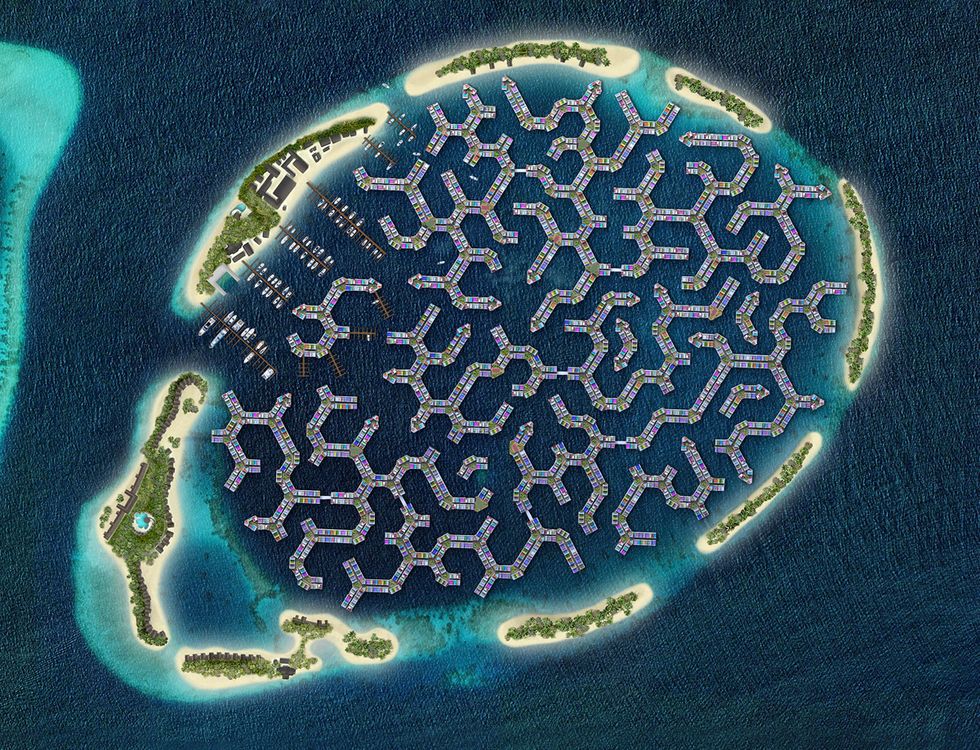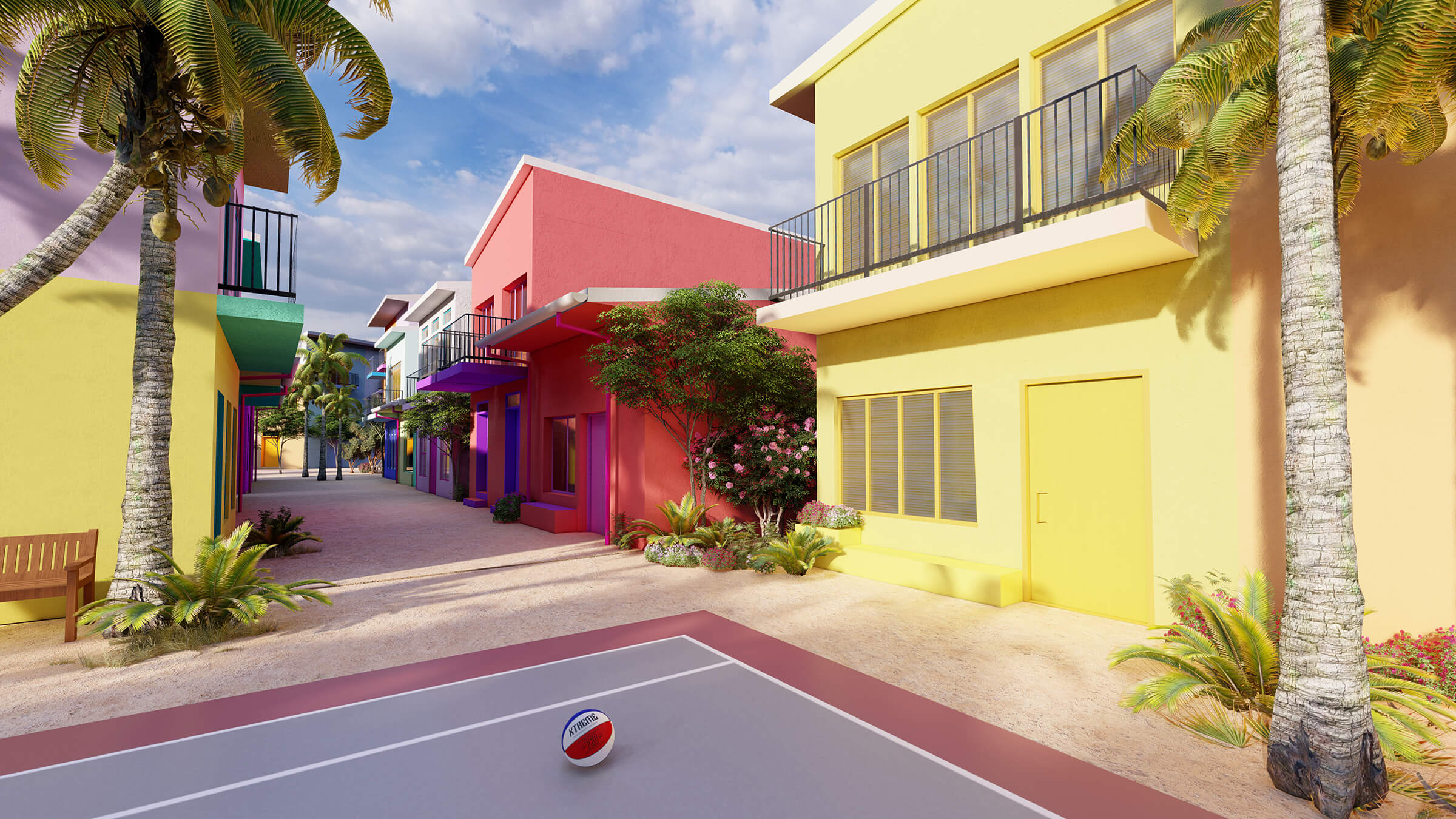
The annual 3-to 4-millimeter rise in sea levels is expected to impact many coastal communities in the coming decades. However, few are as vulnerable as the Republic of the Maldives, a collection of more than a thousand picturesque islands in the Indian Ocean. NASA researchers believe that parts of what is "arguably the lowest-lying country in the world" will become uninhabitable by 2050, due to wave-driven flooding and limited freshwater. To combat the inevitable, the government recently unveiled plans for the world's first "true" floating island city.

In the works for over a decade, the aptly-named Maldives Floating City (MFC) is the brainchild of the Netherlands-based Dutch Docklands, a global leader in floating infrastructure. According to the March 13, 2021, announcement, the new city will be constructed on about three-quarters of a square mile, or a 200-hectare, lagoon located just 10 minutes by boat from the Maldivian capital, Male. It will initially comprise about a thousand waterfront residences, arranged in a series of honeycomb-like hexagonal maze rows, reminiscent of the shape of a coral reef. The developers plan to add hotels, restaurants, shops, and even a school and a hospital in the near future. The floating structures will be anchored to the surrounding islands, which will form a base and provide protection from high tides.
Maldive officials aim to make MFC as carbon neutral and self-sufficient as possible. Freshwater storage will provide drinking water for residents, while floating solar blankets and agriculture fields will take care of their energy and food needs.

“This Maldives Floating City does not require any land reclamation, therefore has a minimal impact on the coral reefs,” explains Mohamed Nasheed, President of the Maldives from 2008- 2012, Speaker of Parliament and CVF Ambassador of Ambition. “What’s more, giant, new reefs will be grown to act as water breakers. Our adaption to climate change mustn’t destroy nature but work with it, as the Maldives Floating City proposes. In the Maldives, we cannot stop the waves, but we can rise with them.”
Construction of the revolutionary city is expected to begin in 2022 and be completed in phases over the next five years. If successful, it will provide a blueprint for other countries facing a similar situation.
Resources: maldivesfloatingcity.com
